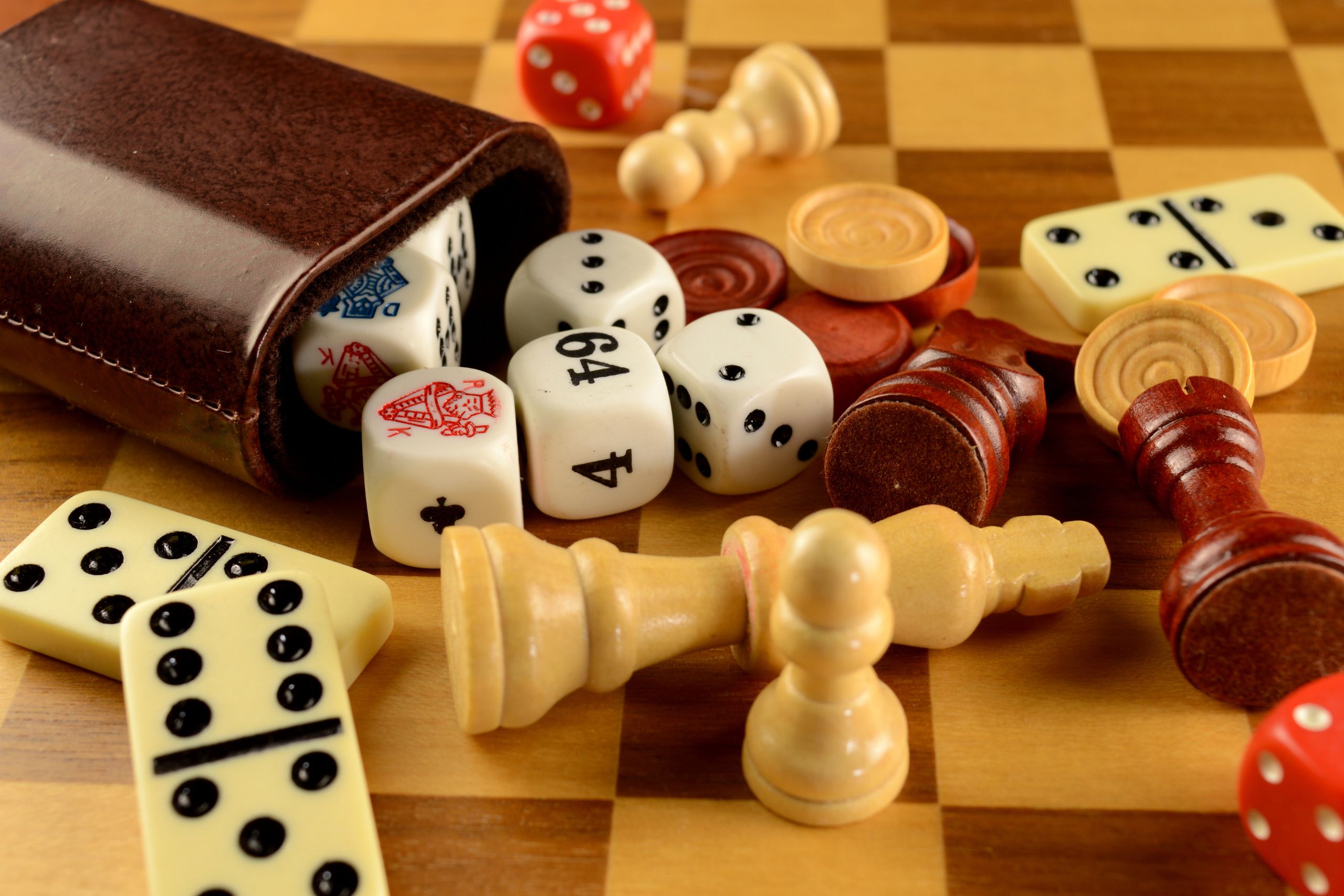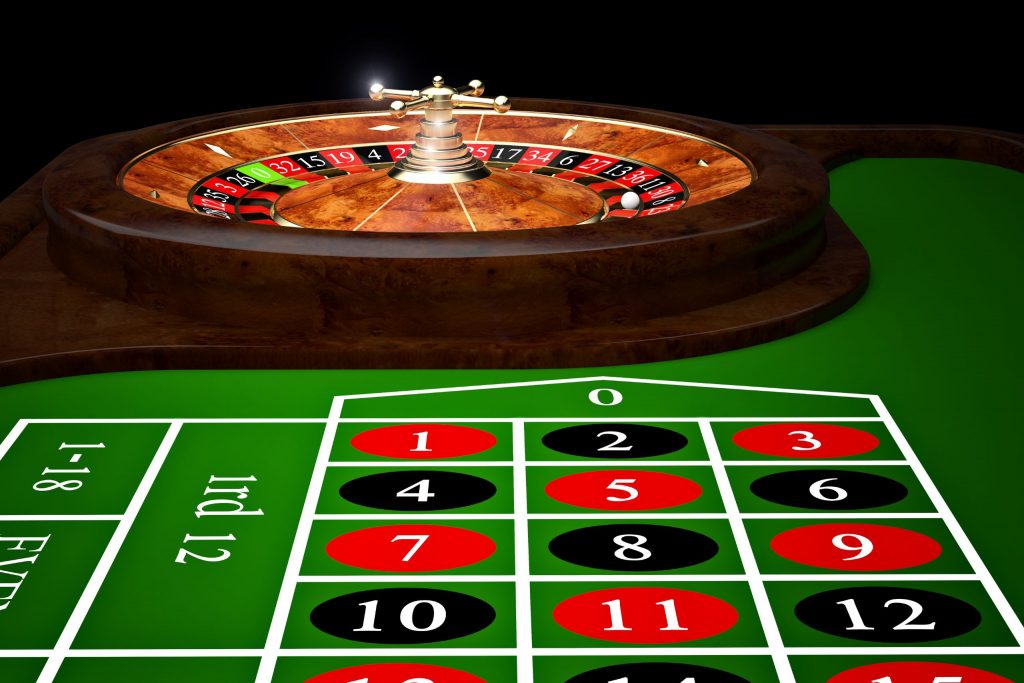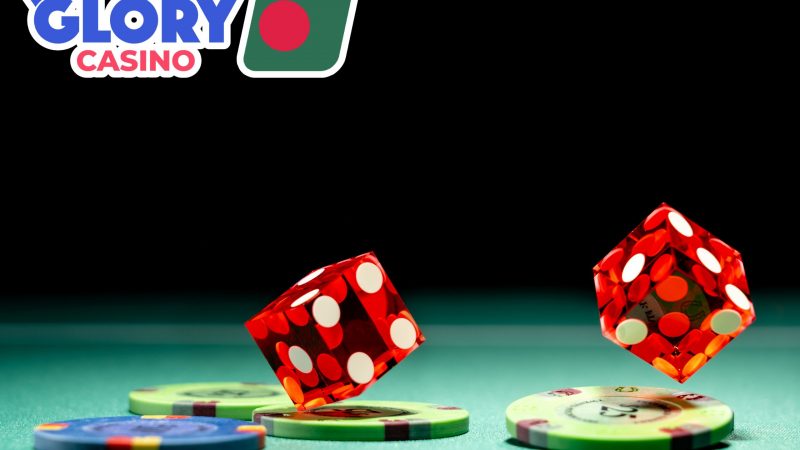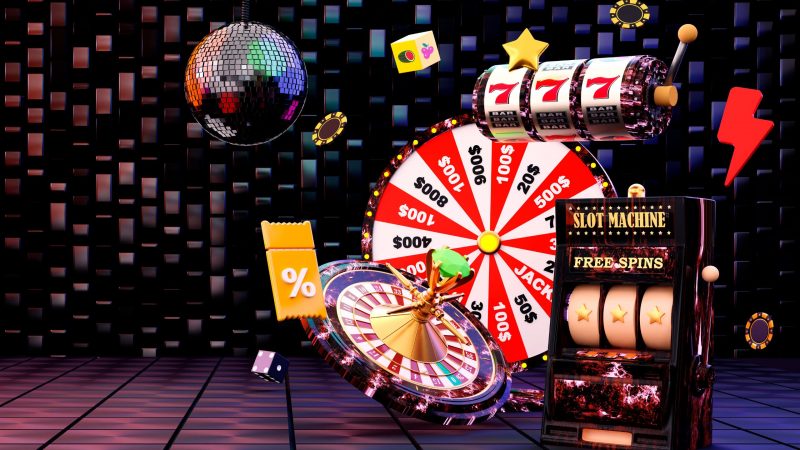Transforming Tradition: The Modern Take On Classic Table Games

Roulette, blackjack, and other classic table games have been fun for a long time because they are hard and interesting. It seems like these old games are becoming more popular, even though there is newer technology and digital fun out there. They work so well on the web that this is the case. Besides being popular, moving games to online sites has led to new ideas that make the experience better. A new generation of gamers is drawn to the online versions of these classic games because they offer more ways to bet, better graphics, and live players that make it feel like you’re in a real casino. This piece talks about how these old games have been updated to fit modern tastes while still keeping the core elements that have made them classics. This keeps them relevant. Join us as we look at how these table games are still interesting and fun in the digital age by exploring the exciting intersection of old games and new technologies.
Enhanced Graphics and User Interfaces
Graphics and interface design have made a huge difference in the world of online casinos. They have successfully copied the feel of a real casino, which players have come to enjoy. Realistic movements and high-quality graphics bring the excitement of the casino right into players’ homes, creating an experience that looks and feels like being in a real casino. Realistic card flipping, spinning wheels, and even virtual dealers dealing with players to make the experience more realistic are already built into games like Blackjack and Roulette. This level of realism not only shows what the casino is really like, but it also makes players feel like they are a part of the events.
Also, the development of easy-to-use browsing tools has made online games easier for more people to reach. Users can quickly find their favorite games, manage their accounts, and connect with different tools without having to deal with unnecessary complexity thanks to simple designs. Better usefulness means that players can easily switch between games and bet options. For mobile users, this includes making the browsing choices easier to use and making sure they work with touch screens. Putting a focus on usefulness is a big part of getting new players because it takes away the stress that usually comes with going to a regular casino. By combining beautiful, modern design with easy access, online casinos create a fun and appealing environment that not only brings back the old-school gaming experience but also encourages users to get to know each other.

Live Dealer Integration
Live dealer games have changed the way people play games online by skillfully mixing the ease of use of computers with the excitement of real-life settings. Using cutting-edge video technology, these games let players connect with experienced dealers in real time, creating the feel of a real casino. Unlike many fixed online games, participants in a live venue may see the dealer shuffle cards, spin the roulette wheel, or manage game operations, therefore encouraging a realism lacking in many fixed online games. As players may see the game run in real-time free from artificial intelligence or random number generators controlling online gaming, this immersive experience not only raises the thrill but also promotes confidence.
Moreover, live dealer games include a social component that enhances the group component of conventional table games. Like in a land-based casino, integrated chat systems enable users connect with dealers and other players, therefore enabling the sharing of the highs and lows of the game. This contact promotes friendship and a shared environment, thereby enhancing the game experience by means of which one may enjoy it. Live dealer games have effectively kept the core of what makes casino gambling unique by giving players a venue where they may plot, celebrate successes, or even mourn losses together, all while adjusting to the digital age. This creative strategy not only appeals to experienced gamblers but also draws new players, therefore assuring that the attractiveness of games like Blackjack, Roulette, and Baccarat stays bright and reachable.
Hybrid Variants of Classic Games
Combining current technologies with conventional guidelines in hybrid games has begun to change classic board gaming experiences and provide new thrills into known forms. One amazing example of this is Monopoly’s current point of view, which has changed over several iterations introducing side bets and multipliers. These changes inspire smart financial judgments, thereby enabling players to participate in degrees of gaming above standard property exchange. Both new players seeking a more dynamic and varied experience as well as experienced players familiar with the original approaches will find value in this improvement.
Another incredible hybrid is the way Scrabble has been developed into digital forms wherein players may participate in real-time online matches with options to employ power-ups or multiplier. Using unusual letters or achieving certain word combinations earns bonus points for these qualities, therefore providing a fresh take on the classic spelling game. Combining these modern components lets players experience the competitive excitement of current gaming along with the tactile delight of word building. This blend of old and new allows classic board games to remain relevant and accessible, appealing to all gaming preferences and thereby building the community of players.
Mobile Optimization
The rise of mobile gaming has transformed player interaction with their preferred tabletop games, therefore reducing the limitations of time and place. Players of games like Monopoly Go on tablets and smartphones may savor a full gaming experience anywhere and at any moment. Those who play casually and may have little time for regular board gaming sessions will find especially appealing this ease. Shorter play periods made possible by the digital format let players enter a game during a commute, wait in line, or during a brief break at work. Therefore, the mobile gaming scene has skillfully adapted to current living, in which access and flexibility rule most importantly.
Furthermore, mobile adaptations have effectively maintained and sometimes improved the level of gameplay linked with their physical equivalents. Mobile games may provide an immersive and visually appealing experience with vivid visuals, dynamic interfaces, and simplified mechanics meant especially for touchscreens. Mini-games and social components not featured in regular editions greatly enhance the experience by allowing users connect and challenge friends or people all around. This combination of classic components with creative digital improvements guarantees that players are not compromising quality for convenience; rather, they are enjoying a fresh perspective that keeps the core of the original game while embracing the possibilities of current technology. Mobile gaming has so changed tabletop experiences and generated a dynamic environment appealing to a wide spectrum of gamers.
Social and Multiplayer Characteristics
Digital board games’ inclusion of social elements like chat options and multiplayer modes has changed players’ perception of camaraderie, thus faithfully simulating the sensation of in-person gaming. These instruments enable players to have real-time interactions, think together, joke precisely as they would across a traditional game table. Chat tools assist to create a community and provide a better gaming experience than just rolling dice or drawing cards by allowing players trade insights, celebrate triumphs, and discuss game mechanics.
Multiplayer environments especially help to enhance this feeling of closeness by helping users engage with friends or meet new acquaintances in a common game environment. Playing against friends or forming alliances replicates the dynamics of traditional board games, in which experience comprises laughter, competitiveness, and camaraderie. Furthermore, these digital channels often let users construct personalized games that represent their own tastes and style by means of which they may have unique experiences. This combination of social contact and gameplay not only preserves the core of face-to–face gaming but also extends it, therefore enabling a worldwide audience independent of physical location.
Ultimately, the integration of these social components decreases the barrier between digital and physical board gaming such that the delight of strategic play and shared experiences continues growing in the present gaming environment. These advances not only increase player participation but also validate gaming as a social activity, therefore respecting both competitiveness and friendship by means of relationships and an interactive surroundings.

Conclusion
Classic tabletop games have essentially joined the internet scene by include digital copies that retain the essence of the original gameplay while enhancing user participation via social features, interactive components, and unique monetization tactics. Apart from reflecting the pleasures of their physical counterparts, games like Monopoly GO, Scrabble, and Cluedo have also added freemium structures and in-app fees so players may compete and interact creatively. QR codes enhance the narrative and game experience by allowing players access to more material and interactive storytelling, therefore supplementing the experience. These cherished games draw fresh generations of players who improve the active community around them as they develop. Analyzing these contemporary versions gives a novel yet familiar gaming experience that excites both new and experienced players equally.






